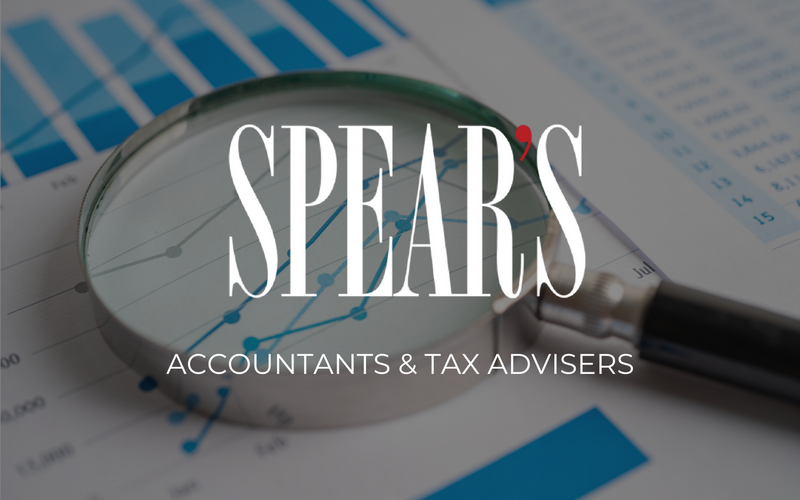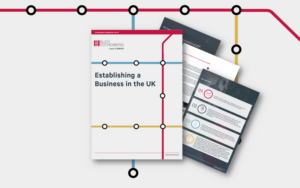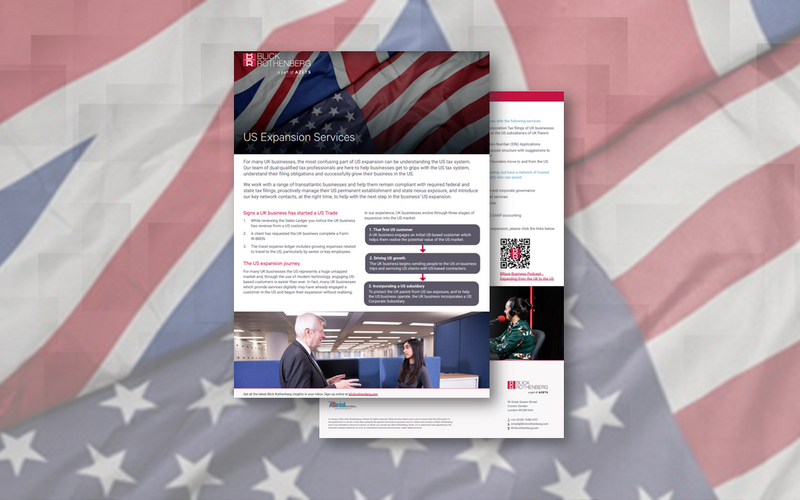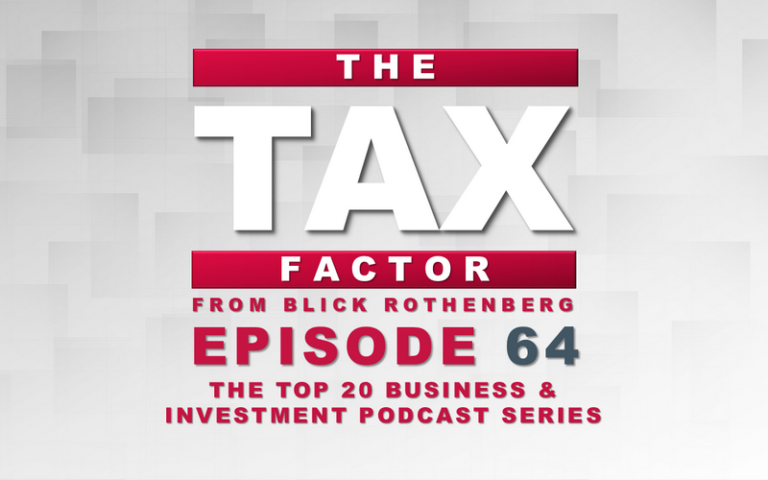How the Chancellor’s Spring Budget will impact Japanese businesses operating in the UK
今年度の春季予算案が在英日系企業に与える影響
Personal Income Tax - 個人所得税
Summary(概要):
The current main rates of Income Tax, the basic and higher tax rate thresholds and Personal Allowance will remain unchanged.
現行の主な所得税率、累進課税の所得帯および基礎控除非課税枠に変更はありません。
Usually, significant announcements in the personal tax area would be expected in the run up to an election. However, similar to the 2023 Autumn Budget, it was disappointing that there were again no announcements reducing the main rates of Income Tax or increasing the basic and higher tax rate thresholds. Perhaps under the current Conservative Government which remains keen to reduce debt, this would prove too costly.
通常、選挙が近くなると個人所得税に関する大きな改正等が発表されることが多いですが、昨年の秋季予算案に引き続き、残念ながらまたも現行の個人所得税に関する減税は発表されませんでした。国の債務削減を重要視する現行の保守党政権にとって、個人所得税の減税はコストがかかりすぎる選択肢だったのかもしれません。
Impact on Japanese businesses(日系企業・個人への影響):
For Japanese corporates in the UK who are bearing their assignees’ tax costs by gross-up, a significant decrease of the 45% additional tax rate thresholds (from £150,000 to £125,140) which was announced at the 2022 Autumn Statement will continue to be a heavy burden.
駐在員の税務コストをグロスアップで負担している在英日系企業の場合、2022年の秋季予算案で発表された45%の累進課税所得帯の大幅な引き下げ(15万ポンドから12万5,140ポンドへ)が今後も重い負担として継続されることになります。
Further National Insurance cuts - 社会保険料のさらなる減税
Summary(概要):
Instead of no Personal Income Tax cuts, the rate of employee’s National Insurance contributions (NIC) will be further reduced from 10% to 8%, and from 8% to 6% for the self-employed from 6 April 2024.
個人所得税の減税がない代わりに、2024年4月6日より英国国民保険料(NIC)の従業員負担分が10%から8%へ、そして自営業者の負担分が8%から6%へとそれぞれさらに引き下げられます。
Similar to the 2023 Autumn Budget, instead of no changes in the Income Tax rates, the Chancellor announced again the National Insurance cuts from 6 April 2024. The rate of employee’s National Insurance contributions (NIC) has been reduced from 12% to 10% since January 2024, but will be further reduced from 10% to 8%. Also, as a result of the 2023 Autumn Budget, the class 4 NIC rate for the self-employed was already set to be reduced from 9% to 8% from 6 April 2024 but it will be further reduced to 6%.
昨年の秋季予算案の際と同様に、個人所得税の減税が無い代わりに政府はさらなるNICの減税を2024年4月6日から適用することを発表しました。NICの従業員負担分は2024年1月より12%から10%へと引き下げられていましたが、今回の発表によりさらに10%から8%へと引き下げらることになります。また、昨年の秋季予算案の際に自営業者のNIC負担分であるClass4 NICが2024年4月6日より9%から8%へと引き下げられることが決定していましたが、今回の発表によりさらに8%から6%へと引き下げられることになります。
Impact on Japanese businesses(日系企業・個人への影響):
This will not have an impact on many Japanese corporates in the UK with assignees seconded from Japan, as there is a social security agreement between the UK and Japan and the Japanese assignees are exempted from UK NIC for a maximum of eight years. However, if there are any assignees exceeding eight years in the UK, and the employer is bearing their assignees’ NIC costs by gross-up, this will be good news for the employer.
日本からの駐在員がいる在英日系企業の場合、日英社会保障協定により日本の駐在員は最長8年間英国のNICの支払い義務を免除されるため、今回のNIC減税は多くの日系企業にとって何も影響を与えません。ただし英国勤務が 8 年を超える駐在員がいて雇用主がその駐在員の NIC 費用をグロスアップで負担している場合、これは雇用主にとって朗報と言えるでしょう。
Abolition of non-domicile status - 英国非本籍者 (UK non-domiciled individuals) ステータスの廃止
Summary(概要):
From 6 April 2025, the concept of domicile will be scrapped, and a new residence-based system will be introduced.
2025年4月6日より、英国税務特有の「Domicile」コンセプトが廃止され、実際の英国居住の実態に則した新たな制度が導入されます。
Over the last week or so there has been increasing speculation that changes would be made to the “non-dom regime”. The announcements by the Chancellor were nonetheless a surprise, and a politically motivated tactic to outmanoeuvre Labour, who themselves had promised to make sweeping changes if they won the next election.
ここ一週間ほど、「英国非本籍者 (UK non-domiciled individuals)」 制度に何らかの改正があるのではないかという憶測が高まっていましたが、それを考慮しても今回の発表は驚きをもって受け止められました。次の選挙に勝てばこの件に関して抜本的な改革を行うと公約していた労働党を出し抜くための政治的動機に基づいた決定と言えるでしょう。
The current regime allows non-domiciled individuals (non-doms) to claim the remittance basis for the first 15 years of UK residence. The remittance basis means that for the first 15 years of UK residence an individual is only taxed on UK income and capital gains – foreign income and capital gains (FIGs) are not subject to UK tax, to the extent they are not remitted to the UK. The remittance basis is essentially free for the first seven years of residence, following which there is an annual charge of £30,000 increasing to £60,000 after 12 years of UK residence.
現行の制度では、英国で税務上の居住者となってから最初の 15 年間は、英国非本籍者 (UK non-domiciled individuals) であれば「送金課税ベース」を選択し英国で確定申告することが認められています。 送金課税ベースとは、その個人が英国に居住してから最初の 15 年間は英国源泉の所得とキャピタル ゲインに対してのみ課税されることを意味し、英国外での所得およびキャピタル ゲイン (FIGs) は、英国に「送金」されない限り英国で課税対象になりません。 送金課税ベースは、英国で税務上の居住者となってから最初の 7 年間は原則的に無償で選択可能ですが、その後も送金課税ベースを選択する場合は年間 30,000 ポンドのチャージが課され、12 年間英国に居住するとさらに60,000 ポンドに増加します。
The key takeaways of the new regime are as follows:
新たな制度の主要な点は次のとおりです。
Individuals who have been non-resident for the previous 10 years will not be taxable on their FIGs for the first four years of UK residence. Their FIGs can be brought to the UK with no UK tax charge.
過去 10 年間において英国で非居住者だった場合、英国で居住者となってからの最初の 4 年間は、英国外での所得およびキャピタル ゲイン (FIGs)が英国で非課税となります。 これらの英国外の資産は、英国で課税対象となることなく英国に持ち込むことができます。
Anyone who has been UK-resident for more than four years will pay tax on their worldwide income and gains.
ただし4年以上英国に居住する場合、全世界所得に対して英国で課税対象となります。
Transitional rules should allow non-doms to remit FIGs that arose before 6 April 2025 at a preferential UK tax rate of 12%.
改正前の移行期間中に特例措置が設けられ、英国非本籍者 (UK non-domiciled individuals)であれば2025年4月6日より以前に生じた英国外での所得およびキャピタル ゲイン (FIGs)を優遇税率12%で英国に送金できるようにする調整が進んでいます。
Non-doms who lose access to the remittance basis from 6 April 2025 and are not eligible for the new four-year FIG exemption, will benefit from a 50% reduction in their personal foreign income subject to UK tax in 2025/26.
2025年4月6日から送金課税ベースが選択できなくなり、なおかつ新制度での4年間のFIGsの免税も享受できない英国非本籍者 (UK non-domiciled individuals) は、2025/26年に英国で課税対象となる英国外所得の50%削減が認められることになります。
UK resident non-doms who have claimed the remittance basis will be able to rebase assets to value at 5 April 2019, such that for disposals after 6 April 2025 only the increase in value from 2019 will be subject to UK capital gains tax.
送金課税ベースが選択している英国非本籍者 (UK non-domiciled individuals)は、所持する資産を2019年4月5日時点の価値で計上することができるため、2025年4月6日以降に資産を処分した場合は、2019年からの資産価値の増加分のみが英国キャピタルゲイン税の対象となります。
The current protections afforded to non-resident trusts will be removed for all FIGs arising after 6 April 2025. FIG that arise before 6 April 2025 will not be taxed unless distributions or benefits are paid to UK residents who have been here for more than four years.
英国外信託 (non-resident trusts) に与えられている現行の税務上の恩恵は、2025年4月6日以降に発生するすべてのFIGsに対して廃止されます。2025年4月6日より前に発生するFIGsは、4年以上英国に居住している個人に分配金等が支払われない限り課税はされません。
Impact on Japanese businesses(日系企業・個人への影響):
Japanese nationals who were born to Japanese parents in Japan are in principle all considered as UK non-domiciled individuals and thus they were able to enjoy the beneficial non-dom tax regime. With this significant change, Japanese nationals currently living in the UK and those thinking of moving to the UK will need to consider how the changes may affect them and keep a close eye on the impact. For Japanese corporates in the UK who have assignees seconded from Japan, it is advisable to review carefully each assignee’s UK assignment period and assess the tax impact, and make sure that the future assignees will not stay in the UK for more than 4 years.
日本で日本人の両親のもとに生まれた日本人であれば原則として英国非本籍者 (UK non-domiciled individuals)と見なされるため、今まで優遇税制の恩恵を享受することができました。 この大幅な改正に伴い、現在英国に居住している又は英国への移住を検討している日本人は、今回の変更が自分たちの英国での税務状況にどのような影響を与えるかを慎重に考慮し、注視する必要があると言えるでしょう。 日本からの駐在員を抱える在英の日系企業の場合、各駐在員の英国赴任期間を再度慎重に見直し税務上のインパクトを見極めること、および将来の赴任者が英国に4年を超えて滞在しないようにすることなどの対策が必要になるでしょう。
Overseas Workday Relief (OWR) - 海外勤務日数控除
Summary(概要):
Overseas Workday Relief (OWR) will be retained and simplified under the new regime.
海外勤務日数控除は新制度の下でも維持され、より簡素化されます。
Overseas Workday Relief (OWR) is one of the typical tax benefits which UK non-domiciled individuals can enjoy. Even after the abolition of non-dom regime from 06 April 2025, OWR will still be available for the first three years of tax residence if an individual is also claiming the FIGs regime in these years. OWR will be also simplified in that there will no longer be a requirement for overseas source employment earnings to be retained offshore.
海外勤務日数控除 (OWR) は、英国非本籍者 (UK non-domiciled individuals)が享受できる典型的な優遇税制の 1 つです。 2025年4月6日以降non-dom制度が廃止された後でも、該当の個人が英国居住者となって最初の3年にFIGs制度を申請する場合、OWRも引き続き利用可能です。 また、海外勤務に関する雇用収入を英国外で受け取りそのまま英国外に保持するというOWR申請の条件が廃止されるため、実質的に簡素化されます。
Impact on Japanese businesses(日系企業・個人への影響):
For Japanese corporates in the UK who are bearing their assignees’ tax costs by gross-up, OWR has been a significant tax saving scheme. It is therefore good news that OWR will be still available even after the abolition of non-dom regime but it is important to understand the new rules and claim OWR correctly.
駐在員の税務コストをグロスアップで負担している在英日系企業の場合、海外勤務日数控除 (OWR) は企業の節税という意味において非常に有用な制度でした。従ってnon-dom制度の廃止後もOWRが引き続き維持されることは歓迎すべきニュースですが、新制度を理解しOWRを正しく申請することが重要になると言えるでしょう。
Inheritance Tax (IHT) - 相続税
Summary(概要):
There was no mention of immediate changes to Inheritance Tax.
相続税の変更については特に言及はありませんでした。
Under the current regime, no IHT is due on non-UK assets until a non-dom has been UK resident for more than 15 out of the previous 20 years. While no immediate changes have been made in relation to IHT, there will be a consultation on moving IHT to a residence-based regime as well, with an initial indication that after 10 years of UK residence an individual will be subject to UK IHT on worldwide assets.
現行の制度では、英国非本籍者 (UK non-domiciled individuals)が過去 20 年のうち 15 年以上英国に居住していなければ、英国外の資産に対する英国相続税は発生しません。今回の予算案で相続税に関する改正は発表されませんでしたが、英国居住の実態に即した制度に移行することについて協議が行われる予定です。例えばDomicileのステータスに関係なく英国に 10 年間居住した個人は全世界資産が英国の相続税の対象となる可能性が議論されています。
Impact on Japanese businesses(日系企業・個人への影響):
As Japanese nationals are often considered as UK non-domiciled individuals, it is rare that UK Inheritance Tax would be due for them unless they have a significant amount of UK situs assets or stay in the UK for more than 15 years. However, going forward it is advisable to monitor carefully the potential changes in the future, especially the implementation of “residence-based regime” as mentioned above.
日本人の場合は英国非本籍者 (UK non-domiciled individuals)とみなされることが多いため、多額の英国現地資産を持っているか又は英国に15年以上滞在しない限り英国の相続税の対象になることはまれです。 しかしながら、将来の改正の可能性、特に上記の「居住の実態に則した制度」が相続税にも導入されるか注意深く見守る必要があると言えるでしょう。
High Income Child Benefit Charge (HICBC) - HICBCに関する改正
Summary(概要):
A new household income system will be introduced from April 2026. In the meantime, from 6 April 2024 the threshold will be changed so that child benefit will not be clawed back until one partner’s income reaches £60,000 and not fully withdrawn until income reaches £80,000.
2026年4月から新しく世帯収入制度が導入される予定です。また同時に2024年4月6日から所得の基準額が変更され、世帯の一方の配偶者の収入が6万ポンドに達するまで児童手当の返還は求められず、児童手当を全額返還する必要があるのは収入が8万ポンドに達した場合になります。
After several years of campaigning, the Government seems to have at last listened to feedback and is proposing changes to rectify the unfairness of the current system whereby child benefit is clawed-back where one partner’s income is more than £50,000 (and fully clawed back where income reaches £60,000). This means that both partners can earn £49,000 (or household income of £98,000) and still receive the full child benefit. Whereas if one partner earns £60,000, the full child benefit is clawed back.
数年間にわたる国民からの訴えに政府はようやく耳を傾けたようで、世帯のうち一方の配偶者の収入が5万ポンドを超える場合は児童手当の一部返還を求められる(そして収入が6万ポンドを超える場合は全額返還を求められる)という現行制度の不公平性を是正するための改正案を提示しました。 新制度では、世帯の両方の配偶者が それぞれ49,000 ポンド (または世帯収入 98,000 ポンド) を稼いでいても児童手当を全額受け取ることができるようになります。 ただし片方の配偶者が 60,000 ポンド以上の収入がある場合、児童手当は一部または全額返還が求められます。
Impact on Japanese businesses(日系企業・個人への影響):
As Japanese individuals could be also entitled to UK’s Child Benefit if they meet the certain conditions, this is good news for those who are currently receiving Child Benefit or who are considering applying for it. It is essential to understand the new rule correctly in order not to pay unnecessary HICBC.
一定の条件を満たせば日本人も英国の児童手当を受給できる可能性があるため、現在児童手当を受給している人、または申請を検討している人にとって朗報と言えます。不必要な HICBC の支払いを避けるため、新制度を正しく理解することが必要です。
The British ISA - 英国ISA口座
Summary(概要):
A new ISA, with a £5,000 allowance, will be introduced in addition to existing ISA arrangements.
既存の英国ISA口座の制度に加えて、5,000 ポンドの投資枠がさらに追加された新しい ISA制度が導入されます。
Currently, the ISA arrangements in the UK offer the investors the chance to invest up to £20,000 tax-free without any restrictions in terms of companies they invest in. However, this new ISA with an additional £5,000 allowance is said to be focused on UK companies. The Government will consult on the details so we should expect further developments in this area.
現在、英国のISA口座では投資先企業に関して大きな制限なく最大2万ポンドまで非課税で投資できます。しかしながら追加の5000ポンドの非課税枠を伴うこの新しいISA制度では、投資先を英国企業に絞る等の制限が加わるのではと言われています。詳細については政府が協議する予定とされていますので、今後の正式な発表が待たれます。
Impact on Japanese businesses(日系企業・個人への影響):
As Japanese individuals would be able to open an UK ISA, this is good news for those who are considering investing their money via UK ISA.
日本人も英国のISA口座を開設できますので、ISA口座を通じて投資をすることを検討している人にとって朗報と言えます。
Corporate Tax - 法人税関連
Summary(概要):
It’s no great surprise that there were more announcements relevant to individuals than companies – the Government is trying to influence voters at the next election, after all. Even so, it still comes as a disappointment that more wasn’t done to support British businesses.
法人税関連では目新しい発表はほぼなく、法人よりも個人に関連する改正等が多かったことは概ね予想通りでした。選挙を控えている現政権は会社よりも個人の有権者の気を引こうとしているためですが、それでも英国企業を支援するために積極的な対策が打ち出されなかったことは残念と言えるでしょう。
There was no increase to the threshold at which UK corporates become subject to the 25% Corporation Tax rate (£250,000) or the small profits rate threshold (£50,000). This means as businesses grow, even if only in line with inflation, more and more corporates will be paying tax at 25%. In addition, the quarterly instalment payment regime applies to companies with taxable profits in excess of £1.5m (with complex rules where the company is part of a group) and this threshold has remained at the same level for decades.
25% の法人税率の対象となる基準額 (25 万ポンド) および19%のSmall Profits Rateの対象となる基準額 (5 万ポンド) の引き上げはありませんでした。これは、企業が成長するにつれて、たとえそれがインフレに伴って会社の売り上げや利益が増えているだけであっても、25%の法人税を支払う企業が増えることを意味します。 さらに、四半期ごとの分割払い制度は、課税対象利益が 150 万ポンドを超える企業に適用されますが (その企業がグループ会社の一部である場合には複雑な規則が適用されます)、この基準額は何十年にもわたって同じレベルに保たれています。
The cut in Employee’s NIC will be welcomed by every worker in the UK, but again Employer’s NIC rates were left unchanged at 13.8%. The cost of employment in the UK, including Employer’s NIC, auto-enrolment pension contributions and the Apprenticeship Levy, continues to be a barrier to greater employment and growth for UK businesses.
NIC の従業員負担分の引き下げは英国のすべての被雇用者に歓迎されるでしょうが、雇用主負担分の NIC は13.8% で据え置かれました。雇用主の NIC負担、年金制度のAuto-enrolment義務、職業実習徴収税 (Apprenticeship Levy) などの英国における雇用主のコストは、引き続き英国企業の雇用拡大と成長の障壁となっています。
To the extent that corporate measures were announced, the film industry is the clear winner. The introduction of a new Independent Film Tax Credit (IFTC) will allow qualifying British films with a production budget of £15 million or less to claim the Audio-Visual Expenditure Credit (AVEC) at an enhanced rate of 53%, rather than the standard 34%.
数少なかった法人関連の発表の中で、映画産業には明らかな朗報がありました。新しいIndependent Film Tax Credit (IFTC) の導入により、製作予算が1,500万ポンド以下でかつ条件を満たす英国映画は、34%の標準レートではなく53%の増額レートでAudio-Visual Expenditure Credit (AVEC)を申請できるようになります。
In addition, the AVEC rules will be amended to remove the current 80% cap on UK visual effects expenditure, the credit rate for UK visual effects costs in film and high-end TV will increase from 34% to 39% (although this increase will not be available to films where the new IFTC is claimed), and eligible UK film studios will be able to claim a 40% relief on their business rates until 2034. The first two of these measures will be introduced with effect from 1 April 2025; the third from 1 April 2024.
これに加えてAVEC制度がさらに改正され、条件を満たす支出に対する税控除を 80% までに制限する現行の制度が撤廃され、映画およびハイエンド TV番組制作における条件を満たす支出に対する税控除率は 34% から 39% に増加します (ただしこれは上記の新IFTC制度が申請されている映画には適用されません)。また対象となる英国の映画スタジオは 2034 年までビジネスレートの 40% 軽減を申請できます。これらの措置のうち最初の 2 つは 2025 年 4 月 1 日から導入され、最後の3つ目は2024年4月1日から導入されます。
The existing tax reliefs for theatres, orchestras, museums and galleries will be extended beyond 1 April 2025 at permanent rates of 40% and 45%. It was previously expected that Theatre and Orchestra Tax Relief rates would be reduced after 1 April 2025, and that Museums and Galleries Exhibition Tax Relief would be phased out entirely from 1 April 2026.
劇場、オーケストラ、博物館、ギャラリーに対する既存の税額控除は、40% および 45% の恒久レートで 2025 年 4 月 1 日以降も延長されることが発表されました。これ以前は劇場およびオーケストラの税額控除レートが 2025 年 4 月 1 日以降に引き下げられ、美術館およびギャラリーの税額控除は 2026 年 4 月 1 日から段階的に完全に廃止されることが予想されていました。
VAT and Duties - VATおよび関税関連
Summary(概要):
The VAT registration threshold will increase from £85,000 to £90,000 with effect from 1 April 2024, and the deregistration threshold will rise from £83,000 to £88,000. This can have a huge impact on businesses that have a ’one off’ transaction that pushes them over the registration threshold, and arguably a £5,000 increase, the first for many years, is still woefully too little too late. It would be great to see the turnover for VAT registration purposes measured over a longer period of time, to ensure only businesses that have sustainably grown over a number of years are pulled into VAT registration.
2024 年 4 月 1 日から、VAT 登録が必要になる基準額は £85,000 から £90,000 に引き上げられ、登録抹消の基準額も £83,000 から £88,000 に引き上げられます。 これは、VAT 登録義務のボーダーライン上におり、何かしらの「1回限り」の取引を行うことで登録義務の基準額を超えてしまうかもしれない企業にとっては良い影響を与える可能性があります。このような基準額の上昇は数年ぶりにようやく発表された対策ですが、5,000 ポンドのみの増額はまだまだ十分ではないと言えるでしょう。「1回限り」の取り引きによってVAT 登録義務が左右されるのではなく、長年にわたって持続的に成長した企業のみが VAT 登録を求められるよう、売上高の推移が長期間にわたってモニターされる制度の構築が待たれます。
Property Tax - 不動産に関わる税制改正
Summary(概要):
A reduction to the rate of Capital Gains Tax (CGT) on disposals of residential properties by individuals on or after 6 April 2024, from 28% to 24%, will come as welcome and unexpected news.
2024年4月6日以降、個人による居住用不動産の売却に対するキャピタルゲイン税(CGT)の税率が28%から24%に引き下げられることが発表されました。予想外の発表でしたが歓迎すべきニュースと言えるでしょう。
On the other hand, two measures introduced in the Budget will come as a significant disappointment to residential property investors.
その一方で、居住用不動産の投資家にとっては大きな失望となる2つの措置も同時に発表されました。
First is the announcement that Multiple Dwellings Relief (MDR) from Stamp Duty Land Tax (SDLT) will be abolished for transactions with an effective date on or after 1 June 2024. MDR previously provided a lower rate of SDLT where two or more dwellings were acquired as part of a single transaction. Contracts that exchanged before 6 March 2024 but complete after that date may still qualify for MDR. This appears to be a response the use of this relief by buyers of large homes with annexes to reduce their SDLT bills. It is also potentially an effort to level the playing field between private buyers and ‘Buy to Let’ investors who were the other major beneficiaries of this relief. However, acquisitions of six or more dwellings will continue to enjoy the lower, non-residential rates of SDLT, meaning larger BTL investors will continue to benefit.
1 つ目は、土地印紙税 (SDLT) におけるMultiple Dwellings Relief (MDR) が、2024 年 6 月 1 日以降の取引に対して廃止されるという発表です。MDR は2 つ以上の住居を単一の売買取引の一部として取得した場合にSDLT 税率を減額する制度でした。2024 年 3 月 6 日より前に契約が交わされたが契約完了がその日以降になった場合、引き続き MDR の対象となる可能性があります。 この発表は、別館付きの大規模な住宅の購入者が SDLT 請求額を削減するためにMDRを利用していたことへの政府の対策と思われます。 また、個人の住宅購入者と、MDR制度から大きな恩恵を受ける「Buy to Let」投資家との間の条件をより平等にする取り組みでもあると考えられます。ただし6 戸以上の住宅の購入には SDLT の低減税率が引き続き適用されるため、大規模な「Buy to Let」投資家は引き続き恩恵を受けることになります。
Second is the abolition of the Furnished Holiday Lets (FHL) regime with effect from 6 April 2025. The short-term letting of FHLs is currently classified as a trade for tax purposes, allowing beneficial tax reliefs to be claimed on disposals of such businesses. In addition, FHLs benefit from capital allowances (which are not otherwise available to residential properties) and an ability to deduct all interest paid on mortgages on the properties. Details of the transitional arrangements are not yet available, but it is clear that investors in FHLs will only have one year in which they can continue to claim all the deductions against their rental income. The Chancellor has closed the door immediately on the favourable tax treatment on the sale of a property sold – for sales on or after 6 March 2025, sellers will not be able to claim Business Asset Disposal Relief, which can reduce the tax rate to 10%, and will instead need to budget for a tax rate of 24%.
2つ目は、2025年4月6日からFurnished Holiday Lets (FHL) 制度が廃止されるという発表です。FHLの短期賃貸は現在、税務上では事業取引として分類されており、そのような事業の売却の際などに有利な税額控除を申請することができます。 さらに、FHL はキャピタルアロワンス(住宅用不動産では申請できない)と、物件購入の際のローンに支払われる利息をすべて控除できるという恩恵を受けることができます。移行措置の詳細はまだ明らかになっていませんが、投資家がFHLから発生する家賃収入に対するすべての控除を請求できる期間がもう1年しかないことは間違いないでしょう。またこれにより、FHLの売却に関する優遇税制についても扉が閉ざされることになりました。2025 年 3 月 6 日以降の売却については、FHLが事業と分類されなくなるため、事業資産の売却の際に税率を10% に引き下げることができるBusiness Asset Disposal Reliefを申請することができなくなります。代わりに税率 24% のキャピタルゲイン税で計算する必要があります。
Would you like to know more? - もっと詳しく知りたいときは
If you have any questions about the above or how it may impact your business, please get in touch with your usual Blick Rothenberg contact or Kohtaro Hirota using the contact details or form below.
上記に関してご質問がある場合、また今回の春季予算案が貴社にとってどのような影響を与えうるかについてもっと知りたい場合は、以下の連絡先またはフォームからBlick Rothenberg のいつもの担当者または廣田幸太郎までご連絡ください。
























